Best Foods to Stockpile for an Emergency Food Supply
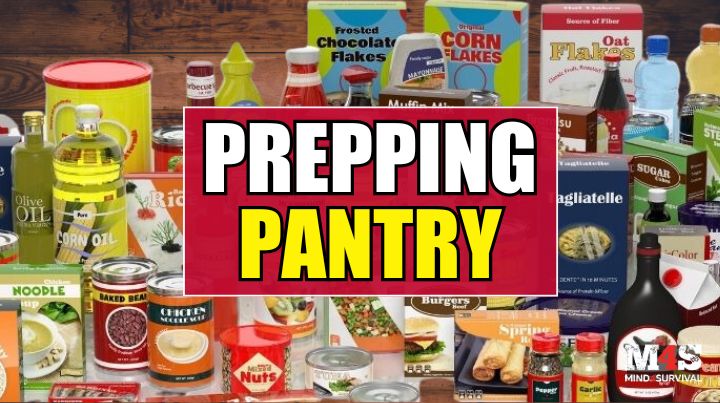
Are you ready to prepare for increasing food shortages and insecurity by knowing the best foods to stockpile for an emergency food supply?
A food emergency can happen to anyone at any time with little or no warning. That's why having a stockpile of food that will last you and your family for weeks or even months is essential. But what are the best foods to stockpile, and why?
You don't want to waste time figuring out what to eat during an emergency. You need foods that are easy to store and won't go bad over time.
I've compiled a list of the best foods to stockpile for an emergency so you can rest assured that you and your loved ones will be well-fed during difficult times.
Read this article and learn more about the best foods to stockpile for emergencies!
What is a Stockpile?
A stockpile is a collection of food or other supplies that people store for future use. People often create stockpiles of emergency supplies in case of a natural disaster or other emergencies.
What do People Stockpile?
One thing to stockpile is food. Food stockpiles typically consist of non-perishable items with a very long shelf life, such as canned goods, dried beans, and rice. These products can provide the required nutrients even if other food sources are unavailable.
Some people stockpile other items, such as first-aid supplies, cleaning supplies, barter items, and replacement parts for use during human-caused and natural disasters.
Define Stockpile
A stockpile is an accumulation of something more than what people need for immediate use. However, in practice, many people choose to create small stockpiles of essential items in case of an unexpected need or shortage.
Types of Stockpiles
Depending on the need, people can create stockpiles for both personal and public use, and they can be either physical or virtual. Virtual stockpiles, such as digital libraries and online databases, can be accessed anytime and anywhere. On the other hand, physical inventories are limited by their location and the amount of space available to store them.
Stockpile Effectiveness
When creating a stockpile, it is essential to consider both the needs of the individuals involved and the capabilities of the storage system. Doing so will help ensure that your supply is effective and efficient.
Stockpiling effectively and efficiently helps ensure that you have enough budget-friendly food stored away to not only meet everyday diet needs but also save money.
Is Stockpiling and Preparing Hoarding?
No, stockpiling resources now for use during hard times is not hoarding. It's called preparedness. Stockpiling is a preparedness-minded person's insurance investment against a future calamity that may or may not happen.
Is it mandatory to insure yourself against a possible future struggle? No, instead, you could spend the time and money it takes to prepare for an unknown and possibly not happening future tragedy doing fun things like going to the beach, an amusement park, or other fun destinations.
In the end, people who accuse others of hoarding are, in my opinion, people who did not prepare. Then, when the problem happens that they are not ready for and others are, they blame those who prepare.
In my mind, those who do that do so for two possible reasons.
- The person realizes they aren't prepared and has no clue why. Rather than look inward, they become scared and respond with a sympathetic reaction of anger, rage, etc., at the people who are prepared.
- The person who knows they aren't prepared because they made a conscious decision not to prepare. While they may be scared, their anger and calling others hoarders are ways of shifting blame for their failure to those who prepared.
In the end, healthy stockpiling is a great thing to do. So, stockpile away!
How to Stockpile Food
Most people think of stockpiling food as expensive, but it doesn't have to be. You can easily stockpile food on a budget by making wise choices and planning ahead.
One of the best ways to do this is to focus on items with a longer shelf life. Shelf-stable items such as canned goods, beans, and rice can last months or even years. So, consider buying in bulk when building your emergency food stockpile.
Another way to save money is to choose foods that are part of your everyday diet. That way, you don't have to buy separate emergency food supplies—you can simply rotate your stockpile to always eat the freshest food.
Following these tips, you can easily build your emergency food stockpile without breaking the bank.
How Much Food to Stockpile
The average person needs around 2,000 calories per day to maintain their weight. However, this number will vary depending on age, gender, and activity level.
In an emergency, it's essential to have enough food stockpiled for at least a few days to a two-week supply. This will give you time to find additional food sources or to evacuate to a safe area.
If you can stockpile more food, it's always better to err on the side of caution. Non-perishable items such as canned goods, dried fruit and nuts, and instant oatmeal are all excellent options for emergency food supplies.
And don't forget to include a manual can opener (or two)!
Can People Prepare a Healthy Food Stockpile?
And yes, by preparing, you can work to be as diet-conscious as possible when digging into your food storage. A disaster does not mean you have to eat poorly. A disaster means you only have to eat as poorly as you prepared for.
If you take the time to add healthy recipes and ingredients to your foods to stockpile, you will be able to eat the best foods possible. The longer you maintain a diet you enjoy, which makes you feel good and healthy, the better off you are.
Eating what you know makes you operate at peak effectiveness seems the most sensible option. Those who think otherwise and feel that a person can't prepare a healthy food stockpile are self-identifying as naysayers #1 and #2 above.
So, if you want to stockpile apples, citrus fruits, sweet potatoes, and the like and rotate your food supply, go ahead and pack your fresh fruit and vegetables. You'll be glad that you did.
What is the Best Food to Stockpile?
Canned Foods
When stockpiling emergency food, it is essential to choose items that will have a longer shelf life. Canned food is an excellent option for this purpose.
Some canned fruits and vegetables can last up to two years, while canned meat and fish can last up to five years. In addition, canned foods do not require refrigeration, making them ideal for emergencies.
When choosing canned food for your emergency stockpile, select items you and your family will actually eat. There is no point in stockpiling food that will go to waste.
With some planning, you can build an emergency food stockpile that will last you through the most prolonged power outages or natural disasters.
Canned Meats
Canned meat is a great food to stockpile for emergencies for a few reasons.
First, canned meats have a long shelf life and can be stored for months or even years without going bad. This is important in an emergency when you may not have access to fresh food.
Second, canned meat requires little to no preparation. They can be opened up and eaten without needing cooking equipment or other supplies. This is ideal in an emergency when you may not have power or gas for cooking.
Finally, canned meat is nutritious and provides essential protein and nutrients your body needs.
In an emergency, it is crucial to have food that will keep you healthy and help you to survive. Canned meat is an excellent option for food storage because it meets all of these criteria.
Canned Soups
Soups are an excellent food to stockpile for emergencies because they are non-perishable, easy to prepare, and provide a balance of nutrients. Non-perishable foods need not be refrigerated and have a long shelf life, making them ideal for stockpiling.
Canned soup is also easy to prepare—just open the can and heat it on the stove or transfer it into a bowl and heat it in the microwave. And finally, canned soups provide a balance of nutrients, including protein, carbohydrates, vitamins, and minerals.
This makes them a good option for people who might not have access to other food sources during an emergency.
So, next time you're stocking up your pantry, don't forget to include some canned soup.
Canned Tuna
Canned tuna is an excellent food for an emergency stockpile for several reasons.
Firstly, canned tuna has a longer shelf life and does not require refrigeration, meaning it can be stored for long periods without spoilage.
Secondly, tuna is a very versatile food that can be used in various recipes, including sandwiches, salads, and pasta dishes.
Finally, canned tuna is an excellent source of protein and omega-3 fatty acids for maintaining good health.
When it comes to tuna, one Mind4Survival commenter writes, “Far better options are sardines, mackerel, and salmon.” So, do your research and taste test to see what works best for you.
In conclusion, stockpiling tuna in cans is a wise choice for anyone preparing for an emergency.
Canned Fruits
In addition to having a long shelf life and not requiring refrigeration, canned fruit is also a good source of nutrients, including vitamins A and C, potassium, and fiber.
Fruit is also an excellent choice for people with dietary restrictions, as they are typically gluten-free, dairy-free, and nut-free.
When choosing your fruit, look for brands that use minimal processing and do not add artificial sweeteners or preservatives.
Cans can be stored in a cool, dark place for up to two years. While fruit in cans can last for long periods, for the best quality, consume it within a few days of opening the can.
Canned Vegetables
As with other canned food, vegetables are a great food to stockpile for emergencies.
First, vegetables have a long shelf life and can be stored for months or years without spoiling. This means you can keep a supply of cans of vegetables on hand in case of an emergency, such as a power outage or natural disaster.
Second, they are easy to prepare. All you need is a can opener, and you can enjoy a healthy, nutritious meal.
Third, vegetables are relatively inexpensive, making them a budget-friendly option for stockpiling.
Fourth, vegetables provide essential nutrients that your body needs to function correctly. For example, canned tomatoes are a good Vitamin C and lycopene source, both critical for immunity.
In short, canned vegetables are a wise choice for stockpiling in an emergency or severe food supply problems.
Canned Beans
Regarding stocking up for an emergency, canned beans are a great choice.
Not only are they packed with protein and other nutrients, but they also have an extended shelf life. Cans of beans can be stored for years without losing flavor or texture, making them a convenient option for emergencies.
Additionally, beans are inexpensive, so you can stock up without breaking the bank. Iff power is lost during an emergency, beans can be eaten cold or heated on a campfir— no cooking required.
So, if you're looking for a versatile, nutritious, and long-lasting food to stockpile for an emergency, look no further than canned beans.
Dried Food
When people think of stockpiling food for emergencies, they typically envision soup cans and pasta boxes. However, dried foods can also be valuable to any emergency pantry.
Dried foods have long shelf lives and require no refrigeration, making them ideal for storing in a garage or basement. In addition, dried foods are lightweight and easy to transport, so you can take them with you if you need to evacuate your home.
So, next time you're stocking up on supplies for a potential disaster, remember to add dried foods to your list.
Dried Fruits
When properly stored, dried fruit can last for months or even years. Their long shelf life makes them an ideal food to keep on hand in case of power outages or other disruptions to the food supply chain.
Dried fruit is also nutritious and packed with vitamins and minerals. They make a great snack or addition to meals and help you stay energized and focused during an emergency.
So, next time you're stocking up your pantry, don't forget to include some dried fruit!
Dried Beans
Beans are one of the best foods to stockpile for emergencies.
- First, dried beans have a very long shelf life. Dried beans can last for years when stored in a cool, dry place. This means that you can rotate your stock of beans without having to worry about them going bad.
- Second, beans are very versatile. They can be used in various dishes, from soups and stews to salads and dips.
- Third, beans are an excellent source of protein, which is especially important in an emergency when you may not have access to other protein sources, such as meat or poultry.
- Fourth, beans are relatively inexpensive, making them a good option for stockpiling when you are on a budget.
- Finally, beans are easy to prepare. Soak them overnight and cook them on the stovetop until they are soft.
With so many benefits, dried beans are a staple in emergency food stockpiles worldwide.
Drink Mixes
Powdered Milk
Evaporated milk, or powdered milk, is a shelf-stable food you can store for long periods.
Unlike fresh milk, which needs to be refrigerated and has a short shelf life, evaporated milk can be stored at room temperature. This makes it an ideal food to stockpile for emergencies.
Milk is also highly nutritious, containing all the essential nutrients found in milk.
In addition, it is versatile and can be used in various recipes. Whether making a pot of soup or baking a cake, powdered milk is a good choice when fresh milk isn't available.
So, add some milk to your emergency stockpile next time you're stocking up your pantry.
Powdered Drink Mixes
Powdered drinks are a versatile and convenient option for emergencies. They can be used to make hot and cold beverages, and they come in various flavors to suit every taste.
Most mixes only require water, so they can be easily prepared even when power and running water are unavailable. Additionally, powdered drinks are lightweight and have a long shelf life, making them easy to store and transport.
In an emergency, having access to a nutritious and satisfying beverage can make all the difference.
Powdered drink mixes offer a quick and easy way to maintain hydration and nutrition, making them an ideal food to stockpile for emergencies.
Sauces and Additions
With rice, beans, and similar products a staple of most emergency food planning, adding sauces, gravies, and other additions to your base meal is a necessary consideration.
Including sauces and additions to your meal planning allows you to break up the monotony of bland meals, make them more nutritious, and give them something to look forward to.
So, don't only prepare to cook rice and beans. Be ready to turn your staples into enjoyable meals.
Pasta Sauces
Pasta sauce is a versatile, nutritious, and shelf-stable option that can be used in various recipes. Furthermore, it's easy to find Kosher and Halal options, making it a good choice for people with dietary restrictions. Because pasta sauce is relatively cheap, it's easy to stock up on large quantities without breaking the bank.
Soy Sauce
Rice is a go-to preparedness food for many people's food pantries, so the addition only makes sense. Do you want a quick, warm, and tasty meal? If so, whip up some rice and add a shot of soy sauce. Another great thing about soy sauce? It basically never expires!
Hot Sauce
Hot sauce is another can't-miss condiment that lasts long and can turn a clumpy, bland ball of calories into something that tastes great and fills you up.
High-Powered On-The-Go Food
In an emergency situation, food is essential to provide the sustenance you need to survive. But it's also vital to have food that will boost your mood and give you the energy to stay focused. That's where high-powered, on-the-go food comes in.
Dark Chocolate
Not only is chocolate a delicious treat, but it also contains many nutrients that can benefit your health.
For example, chocolate is a good source of magnesium, which is known to help reduce stress levels. It also contains antioxidants that can help protect your cells from damage. And because dark chocolate has a lower sugar content than milk chocolate, it won't cause spikes in blood sugar levels that can leave you feeling fatigued.
So, if you're looking for food to stockpile for emergencies, add dark chocolate to your list.
Granola Bars
Granola bars are packed with nutrients that help you stay energized during a crisis. They are also relatively lightweight, so you can carry many of them without feeling weighed down. In short, these tasty and easy-to-consume bars are an ideal food to stockpile for emergencies.
The Bottom Line About the Best Foods to Stockpile for an Emergency Food Supply
In summary, food shortages and instability are here to stay for some time. While we hope things will get better, hope will not feed you and your family if things worsen.
Therefore, you must take the bull by the horns and prepare for future food shortages.
Do you have or are you preparing to have a food stockpile? If so, share your thoughts about the best foods to stockpile in the comments below.
Additional Resources:
- 15 Foods to STOCKPILE That NEVER Expire!
- Best Freeze Dryer for Home Use – What to Know Guide! (2023)
- 7 Best Ways How to Open a Can Without a Can Opener
- 15 Best Dehydrators for 2022
Stay safe,

Related Articles
FREE Guide
Read the Best Seller
Join Mind4Survival
Stay informed by joining the Mind4Survival! 100% Secure! 0% Spam!
Affiliate Disclosure...
Mind4Survival is a free, reader-supported information resource. If you make a purchase through our link, we may, at no cost to you, receive an affiliate commission.
Do You Want To Be Ready No Matter What?

Download our free 39-page guide with interactive, 7-Day Emergency Kit Checklist and take the first step toward real preparedness.
- Know exactly where to start.
- Save time and money.
- How-to build a complete Basic Emergency Kit.
- Level up your safety and security.
Join Mind4Survival
Stay informed by joining the Mind4Survival! 100% Secure! 0% Spam!

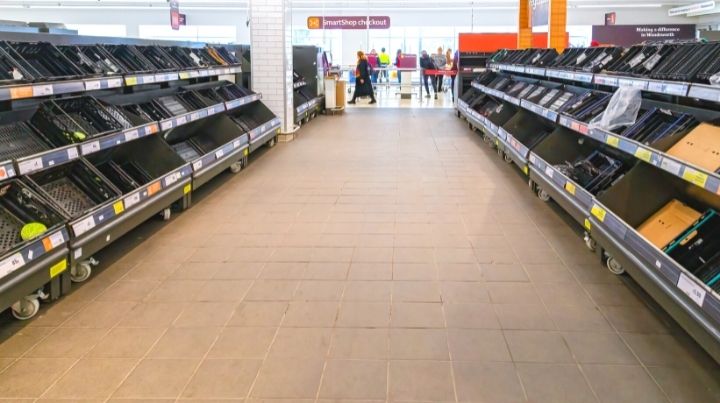

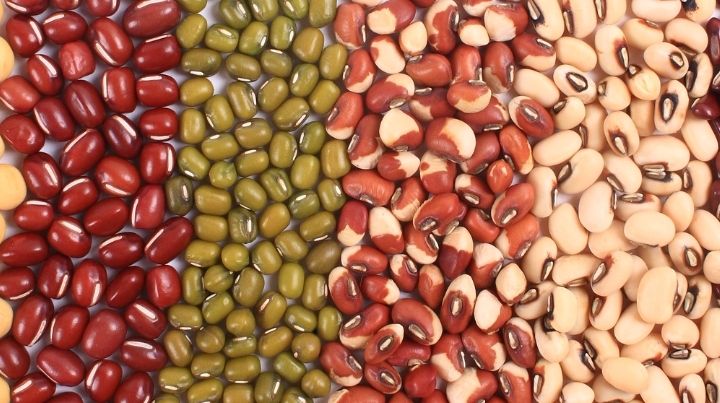

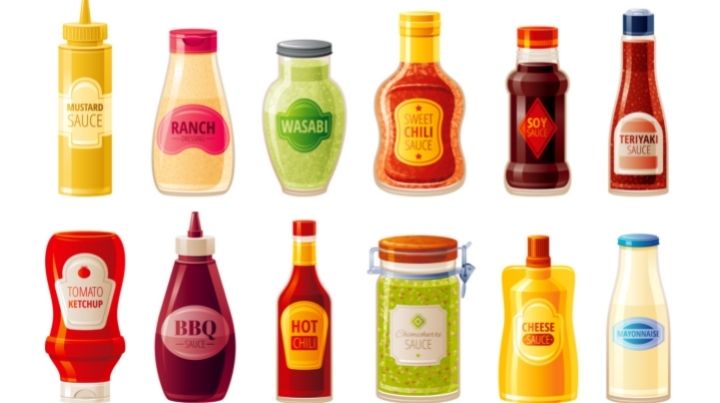


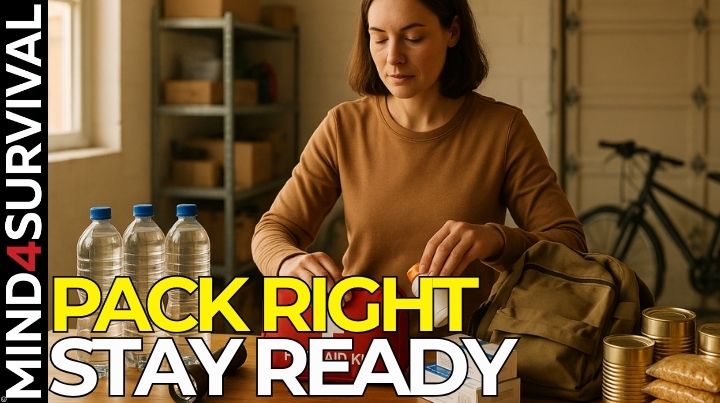


I disagree regarding canned tuna and omega 3. I’ve read far too often that it’s actually very low in omega 3. Far better options are sardines, mackerel, salmon.
Thanks for your comment. I added your sardines, mackerel, and salmon suggestions to the article. 🙂
Agreed. I got some wonderful sardines at Costco. My Dad loved sardines. Bought some because they were recommended for stockpiling, because of their Omega. Never tasted them until my old cat refused to eat. I whipped out the sardines. He loved them, and so did I. Great with crackers. NEVER imagined I would like sardines. Think outside the box. Won’t eat ones with the heads. 😱
How do I estimate order and then order it. Would this be a month’s worth – more or less.